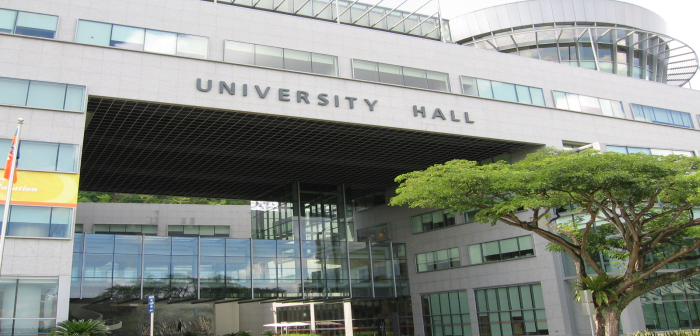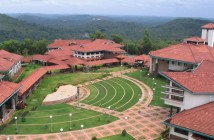The faculty at NUS Business School, Singapore, includes alumni, who in addition to their regular jobs, assume the role of adjunct professors who provide students with real-world insights and experience to supplement academic learning.
Two of the alumni, Anuprita Bhomick, (NUS MBA class of 2003) a Director at Hewlett-Packard, and Maurice Tan (NUS BBA class of 1991) a Director at Microsoft, narrated the reasons that compelled them to take up the assignment at the school in an interview to Outside-In, official community blog of NUS Business School and a gamut of issues related to business education.
Anuprita says she became an adjunct professor “to keep the classroom learning experience as close to real world learning” for the students. Her decision was influenced by her experience as an MBA student when she used to contrast what she was learning in class from textbooks and lectures and that gained from her colleagues, bosses and mentors at the workplace. “Also, I appreciated the insights that the part-time MBA classmates brought from their functional or industry expertise,” she adds.
“Currently we are at the beginning of the next technology revolution characterises by Artificial Intelligence, Deep Machine Learning, Virtual Reality and Augmented Reality that are transforming the way we work and play. In a recent case study on the mobile phone industry, our class discussed the emerging technology forces shaping the future and the implications for industry and consumers.
In the case of Maurice, he says he has been in close contact with the NUS alumni association since graduation and for several years mentoring business students with leadership potential. Interaction with the students and watching them embark on successful careers gave me the confidence to take up teaching.
About adjunct professors’ contribution to the learning experience at NUS, he says they bring alive concepts with real examples of how they are put into practice. “We provide a perspective on how strategic frameworks are applied and highlight what it takes to ensure successful planning and execution. Personally, I try to keep it real and relevant for students who are always curious to understand how their acquired knowledge can connect and be more relevant at their future workplace.”
ALSO READ: LBS Set to Launch “Flexible” MBA in August 2017
Anuprita points out that adjunct professors having learnt to navigate and survive in the corporate world could help students with their practical, hands-on experience. “Our adjunct professors not only solve case-studies, they’ve actually lived the case study. It’s a whole new level of understanding when you’ve been there, experienced that,” she adds.
As to being the adjunct professor contributing to their own learning, Anuprita says she has to work extra hard to prepare for the classes. She also takes student feedback seriously and over the years, she has made substantial progress, not just as a teacher, but also as a corporate citizen.
Maurice says he considers it as his Continuous Learning Platform and a source of self-motivation. “Synthesising those learnings with academic concepts and then structuring them into an MBA Module has been a very instructive exercise. As an adjunct I’m constantly on the look out for real examples that can be incorporated into my class sessions,” he adds.
Asked about the current big trends in the industry, he says in the last 10 years, the centre of gravity in Consumer Tech has rapidly shifted towards more powerful software, cloud computing and big data analytics resulting in a flood of disruptive business models with broad impact across the economy.
“Currently we are at the beginning of the next technology revolution characterises by Artificial Intelligence, Deep Machine Learning, Virtual Reality and Augmented Reality that are transforming the way we work and play. In a recent case study on the mobile phone industry, our class discussed the emerging technology forces shaping the future and the implications for industry and consumers. I have the opportunity to leverage and bring into class unique industry insights relevant to my industry,” he adds.
Anuprita says more and more people are getting connected to the internet, enabling them with information at their fingertips, and making their lives simpler using technology. “Big data is enabling us to make decisions with vast amounts of hitherto unreachable information. Algorithms tell you constantly what people like you would have done, bought, eaten, the list goes on. High-speed data processing is happening not only in data centres but also at the intelligent edge – for example, split-second decisions have to be taken by driverless vehicles. The entire gamut of corporations likes to describe themselves as technology companies now.”
Asked what advice she would give her students, she points out that there is absolutely no substitute for hard work and there are no shortcuts. “Dream big and work incredibly hard every single day to achieve your dreams. Work harder than everyone else around you,” she adds.
Maurice says the surface area of human knowledge and understanding continues to expand at an exponential rate. This is fuelled by the internet democratising the creation and dissemination of knowledge. “Our future leaders need to be great connectors of ideas and talent to create new economic and social value enabled by this expansion of knowledge.
(Anuprita Bhomick teaches the MBA courses Strategy and Big Data and Current Trends in Growth Markets; Maurice Tan teaches the MBA course Big Picture Marketing).(Image Source:wikipedia.org)




